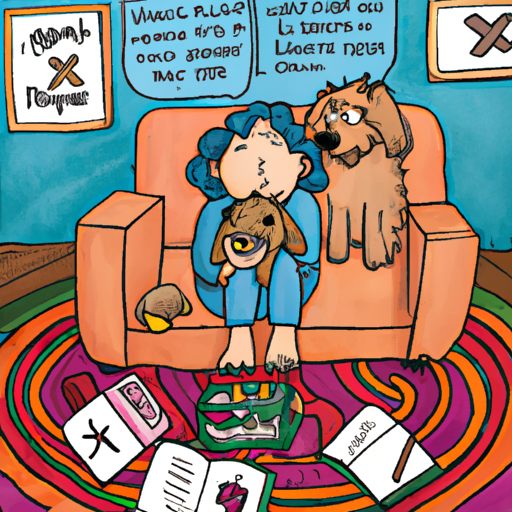As a caregiver, guiding your furry friend through the challenges of separation anxiety can be a daunting task. However, with the right approach, you can help alleviate their stress and cultivate a more secure environment for them.
Understanding Separation Anxiety In Dogs
Separation anxiety in dogs is a distressing condition. It typically manifests when dogs are left alone or separated from their primary caregivers. Symptoms can range from minor disturbances like excessive barking to more destructive behaviors such as chewing furniture or scratching doors. Despite the challenges, understanding the root causes and symptoms is the first step towards helping your dog manage their anxiety.
Identifying The Triggers
Triggers for separation anxiety can vary from dog to dog. Common triggers include:
- Changes in routine: Dogs thrive on predictability. Abrupt changes can cause distress.
- Previous traumatic experiences: Dogs with a history of abandonment or neglect may be more prone to separation anxiety.
- Aging: As dogs age, they can develop separation anxiety due to cognitive decline.
| Common Triggers | Potential Solutions |
|---|---|
| Changes in routine | Maintain a regular schedule |
| Traumatic experiences | Provide a safe, comfortable space |
| Aging | Regular vet check-ups |
Implementing Effective Strategies
As a caregiver, there are several strategies you can employ to help your dog overcome their anxiety.
- Gradual Desensitization: Start by leaving your dog alone for short periods, gradually increasing the duration over time.
- Creating a Safe Space: Designate a comfortable area for your dog where they can feel secure when you’re not around.
- Positive Reinforcement: Reward your dog for calm behavior when you’re preparing to leave and upon return.
Seeking Professional Help
If your dog’s anxiety continues to worsen despite your efforts, it’s important to seek professional help. Veterinarians or professional dog trainers can provide valuable insights and potential treatment options, such as medication or therapy.
FAQ’s
Q: Can separation anxiety in dogs be cured?
A: While it can’t be cured completely, it can be managed effectively with consistent effort and the right strategies.
Q: How long does it take to treat separation anxiety in dogs?
A: The time frame varies depending on the severity of the anxiety and the effectiveness of the chosen treatment plan.
Q: Should I punish my dog for destructive behavior caused by separation anxiety?
A: No, punishment can increase their anxiety. Instead, focus on positive reinforcement and creating a safe, comfortable environment for them when you’re not around.
Remember, helping your dog manage their separation anxiety is a journey, not a destination. With patience, understanding, and love, you can help your dog navigate these waters with confidence.



